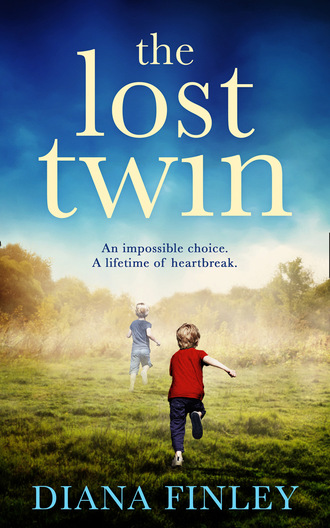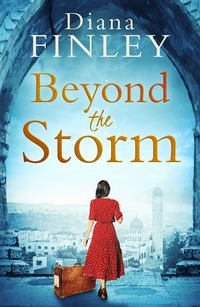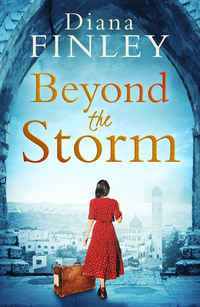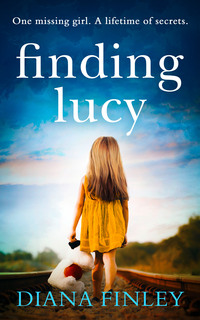
Полная версия
The Lost Twin
I pause, uncertain whether to continue, whether she’d think me bad.
‘Go on, Marie. It’s all right.’
I take a deep breath. ‘He asked me if I wanted to see his caravan. Of course I said yes I did, but that I hadn’t the time just then – I had to get back home to help Ma with the tea. “OK, come back tomorrow then,” he says, putting his arm around my waist. I was melting, Erna, honestly I was. I nearly fainted with the thrill of it.’
‘Of course. You were so innocent, my dear.’
I nod. ‘Deidre said she couldn’t go back with me the next day; she had to go to the market with her ma. She said I should be careful, but I laughed at her, told her not to be such a fussy old biddy, and that she was just jealous. She didn’t like that – not at all. It was a bit mean of me, wasn’t it, but secretly I was pleased I was going back on my own.’
‘So did you go back?’
‘Yes. The following day I walked around the fair, terrified I might not see Billy, that he might have forgotten about me, or found another girl he liked better. But suddenly, there he was! He’d crept up behind me and kissed the back of my neck. I turned and he smiled and stroked the hair off my face. He had such a way with him. The sun made golden flecks in his dark eyes. I felt I was dissolving, Erna, I did really. Billy reminded me he’d promised to show me his caravan, if I wanted. I said yes, I did want. No hesitation. What a silly girl I was!
‘The caravans all looked so quaint and exotic, with their colourful decorations. Billy was kind and funny, and charming. He told me I was beautiful. No one had ever said anything like that to me before, Erna, no one. It was “love at first sight” for me, that’s what it was.’
She smiles and shakes her head gently. She reaches out and takes my hand. I’m starting to cry, but I carry on.
‘Such an exciting life I imagined for myself: travelling around the country in the pretty caravan with this dark, handsome, young man who adored me. He’d said so, clear as anything. I believed him.
‘That was where it happened, of course – in his gypsy caravan. For the rest of that week we met up every day after he’d finished his work on the rides. Then we’d creep back to the caravan. Billy bought me drinks I’d never tried before. They made me feel warm and dizzy and excited. Billy told me I was his special girl. I felt special.’
‘Oh, you poor child,’ Erna says.
I take some deep breaths and continue talking.
‘After Mass on the Sunday, I walked from my home the mile to the village to see Billy. The plan was, I was to go away with him the following morning. That’s what Billy had said.
‘I knew I would have to tell me ma that night. I was a bit nervous about that. Sure, Ma might be upset, about me joining the travelling fair and all, but she’d understand once she saw that we were in love; she’d come around to the idea in the end. I was sure she would. Besides, Billy had said he’d take me back to visit the family regularly so I needn’t worry. He’d explained everything.
‘When I got to the village, the shock nearly killed me, sure it did. There was nothing there, Erna. The village green was there all right, but it was empty, completely empty. The roundabouts, the coconut shies, the helter-skelter, the bumper cars, the waltzer and the gypsy caravans – all gone. Just a few old cans lying about, and lots of rubbish blowing in the dust. The whole fair had disappeared, moved on, and Billy with it. It was as if it had never existed; as if it had been a dream, which perhaps it was. But I soon found that the dream was to become a nightmare.
‘Oh dear, I can believe that,’ says Erna.
‘It was some weeks later I realised I hadn’t had the “curse” for the past two months. Sure, why do they call it the curse, do you think, when it’s not having it is the true curse? I waited one more month to be absolutely certain. There was no doubt about it, I was pregnant. I told Ma. She’d suspected. She’d heard me being sick in the privy. She slapped my face straight off, when I told her, and called me a wicked girl. Then she cried and she hugged me, and called me a foolish, silly baggage, and she cried and cried, and so did I.’
‘Oh dear, what a situation. Your poor mother was frightened for you, Marie. What happened next?’
‘Ma and I concealed the pregnancy for as long as possible. Eventually, she gave me the money for the fare to England, “to sort myself out”. She advised me to have an abortion – and soon – before me da noticed. My skirts were already getting tight. I couldn’t fasten them. Ma gave me a couple of “safe” addresses in London to go to. Women knew about these things; sure, I wasn’t the first in this predicament in our area, Ma said. No way was I to return home with the baby, she told me. It’d be different if there was a father for me to marry. As it was, Da would never have me back in the house – I had to get rid of it. But I couldn’t bear the thought of killing an innocent child – my own child. Never.
‘I made some enquiries of my own, and found out about a mother and baby home in London instead – St Agatha’s. It was run by nuns – so surely they’d be sympathetic? They’d be bound to look after a good Catholic girl, despite my wickedness. That’s what I thought. But it wasn’t like that. Not at all. I had twins you see, Erna. Barry is a twin. The head nun forced me to give my other baby away, my darling Donal. I had to give him up to be adopted. I never wanted to. I miss my Donal so much.’ I’m sobbing bitterly. I can’t speak for several minutes.
I wipe my eyes and blow my nose.
‘There,’ I say. ‘That’s my whole story, Erna, my whole shameful story. God only knows what might have become of Barry and me if it hadn’t been for Sylvia – and you.’
I wait for Erna’s response. Yet she doesn’t seem shocked, not at all. She never even mentions the word ‘shameful’.
‘Thank you, Marie, for telling me your story so honestly. I knew you must have had a very difficult time. You’ve been through a terrible experience, and at such a young age. But you did everything you could to keep your children safe and well cared for. You thought first of them, and not of yourself. You should feel proud of that, and not guilty.’
I can’t speak. A lump rises in my throat and sticks there.
‘We all make mistakes,’ Erna continues. ‘You were only seventeen, innocent as a child. You must not blame yourself. You knew little of the world, still less of men – and you were looking for love. We all seek love. It does not mean you are wicked. You are a good mother – always remember that.’
I think Mrs Goldstein is a wise woman, and a lovely, kind woman, but I don’t think me da would agree with her.
Chapter 6
1976
Barry
I like going to school for lessons. I love my teacher. Her name is Miss Lamb. She understands about me. She knows how much I like to learn things like reading and writing, and number work. Reading is easy. I love books. The words make pictures and stories in my head. Lots of the other children struggle over the words, but it’s so easy! You just have to look and the words jump out of the page.
It’s the same with numbers. The other children are so slow. They must be really stupid. They take ages to count the apples and oranges in the pictures Miss Lamb holds up. Even then they can’t just see that if you put three oranges and five apples in a basket, it makes eight fruits altogether! Sometimes it gets so boring waiting for other children to tell Miss Lamb what they can see, that I just have to shout out the answer. I know you aren’t supposed to do that, but I can’t help it.
Sometimes Miss Lamb says, ‘Well done, Barry,’ in her gentle voice. ‘You’re very good at the numbers, aren’t you? But try not to shout out the answers. You have to give Milly a chance to answer, even if it takes her a bit longer.’
I know Mammy is pleased when Miss Lamb tells her how clever I am. She’s proud of how quickly I learn new things.
Today, at the Mammy and Daddy time, when they come to talk to the teachers, I can hear what Miss Lamb says to Mammy. I don’t have a daddy.
‘He’s the sort of child who soaks up new information like a sponge,’ Miss Lamb tells Mammy. ‘He’s racing ahead with reading and number work. It’s just taking him a bit longer than most children to make friends, but that will come in time with encouragement, I’m quite sure.’
Mammy looks very happy, so maybe she will stop telling me to ‘give other children a chance to answer’ when she can tell I already know the answer? Grown-ups don’t make much sense – and when I ask them what they mean they tell me to shush.
‘What did you do at school today, Barry?’
Mammy always asks that question when she comes to fetch me.
‘At playtime, I mostly walk or skip around the outside of the playground. I like walking on the blue line best,’ I tell her, and she smiles at me.
I don’t tell her about another good game I sometimes play. I don’t think she would like it. It’s where I stop to stare at one of the other children. They don’t always like that, but I do. I like it when they look scared of me. I know Mammy would tell me I shouldn’t play that game.
I don’t like it if someone else is standing in my way on the blue line, when I run round my favourite route. So, then I bend my knees and lift up my arms to look like a monster. I put on a fierce monster face and roar at the person in my way. This makes them move out of my way, which is good – but sometimes the other child bursts out crying and runs to tell Miss Lamb or another teacher on duty in the playground. Then I get told off, when it isn’t my fault.
Once, Miss Lamb asked Mammy to come into the classroom after school to talk to her about my game.
‘Of course, he means no harm by it,’ Miss Lamb told Mammy, ‘but perhaps you could talk to him about good ways to approach other children and make friends? For example, with a “smiley face” rather than a monster face?’
Miss Lamb must have thought Mammy didn’t know what a smiley face was because she was smiling a lot at Mammy, to show her. Mammy started doing her smiley face too and said, ‘Yes, of course, I’ll talk to Barry about it at home.’
I don’t like it when Mammy or Miss Lamb tell me off about things that aren’t my fault. It makes me cross. Sometimes I get in a rage. Mammy doesn’t like me getting in a rage. She says, ‘Calm down, Barry,’ but I can’t calm down, because the angry feeling is there, inside me, bubbling away, like tomato soup boiling in a pan.
***
When we get home Auntie Erna gives me a hug and says, ‘Hello, Barry my dear.’ She’s always kind. I really like Auntie Erna and she likes me. Mammy says that makes her happy because Auntie Erna is a bit like a granny to me, and Mammy is sad that I can’t see my own Granny and Grandpa, because they live far away in a place called Ireland. I’ve never met them, so I don’t really mind not seeing them. I like just having Auntie Erna.
I heard Mammy tell Miss Lamb about Auntie Erna, and that she thinks I get on so well with her because we’re both ‘intellectuals’. Mammy says she wonders if she isn’t clever enough herself, or that maybe she didn’t work hard enough herself at school to be clever like me? But Auntie Erna always tells her off when she says that – she says Mammy is clever.
After dinner – it was spinach and I don’t like spinach – I go down to Auntie Erna’s sitting room on my own. I love to do that. I walk up to her and stand in front of her ’til she notices me. When she looks up at me I say, ‘I’ve come to see you, Auntie Erna.’
‘So you have, Barry my dear. Come and sit down with me.’
She always says that.
Auntie Erna reads books to me that Mammy thinks I’m too young to understand. Long books like Treasure Island, Moby Dick and Oliver Twist. They do have some hard words in them, but Auntie Erna explains what they mean. I love listening to stories. Today we’re reading Oliver Twist. I sit on the floor at Auntie Erna’s feet and rest my head on her knee, looking up at her whenever she shows me a picture.
Stories are a bit like dreams. In my head, I can see the desert island, or the huge whale swimming in the waves, or the hungry little boy called Oliver, with his empty bowl, asking for more gruel. Gruel is like porridge. I can hardly wait for the next chapter.
I love Auntie Erna’s sitting room. There’s a big piano near the window. It’s called a grand piano because it’s so big. In one corner there’s a chessboard on a shiny wooden table. I love looking at the figures. One of them is like a horse. There’s a king and a queen too. Auntie Erna has been teaching me how to play chess. It’s quite a hard game to learn, but Auntie Erna says I’m picking it up really well. She used to play chess with her poor dear boy, Aron, but he died long ago. I think Mammy said he’s in heaven.
Auntie Erna is starting to show me how some of the music notes are written. I can find lots of those notes on the piano. The part of the piano with white and black notes that you press is called the keyboard. One day I might be able to play real music like Auntie Erna. She used to play concerts, but she can’t do that so well now because her fingers got hurt. They’re too crooked to play as fast as before.
When it starts to get dark, Mammy comes in to say it’s time for my bath.
I shout ‘No!’ because I’m having a lovely time, and it’s not fair.
‘Be a good boy, Barry,’ Mammy says. ‘It’s getting late. Auntie Erna must be tired. We have to let her have some peace and quiet …’
Mammy tells Auntie Erna that she worries I might be disturbing her or being a nuisance. That makes me very cross because I know I’m not being a nuisance. I start to cry and shout. Auntie Erna speaks to me in her gentle voice.
‘Now, Barry, Mammy knows what’s best. You need to have a bath and a good sleep, so we can have more fun tomorrow. You know I always enjoy your company, but tomorrow is another day. We’ll have more time for reading and chess, and the piano, tomorrow.
‘But I’m not tired!’
‘Good. That shows you can come back again tomorrow. Will you do that?’
‘All right …’ I say, but I still feel a bit cross with Mammy.
Chapter 7
1976-82
Robert
The regime at the children’s home is rigid and stern. Robert is considered a deeply troubled and troublesome child. He is frequently punished, sometimes severely. It’s noticed at the home that however severe his punishment, he never cries. It is also recorded that at times, when he thinks he is not being observed – for example when alone in bed at night – Robert cries bitterly to himself under the covers.
Robert is intelligent, but his severe emotional and behavioural problems manifest themselves in all environments – in the orphanage, at school and in foster homes. One after another, the foster placements break down due to Robert’s challenging behaviour. Almost without exception, the foster parents reach a stage – usually quite soon after his arrival – when they announce they can no longer cope with the child.
In school, Robert is also often in trouble – for swearing or defiance towards his teachers, and for aggression towards other children of his own age or older. Yet he can show moments of kindness too; for example, comforting younger children who hurt themselves, rescuing and feeding abandoned young animals, or offering to help some of the older carers in the home with difficult or heavy tasks.
At times he demonstrates subtle humour and understanding; he can apply himself to subjects he enjoys at school with great concentration. Gradually, he succeeds in many areas of schoolwork, sometimes showing exceptional ability. Yet his behaviour continues to be highly unpredictable and fiery. There is concern about early signs of potentially criminal characteristics.
At eleven, Robert is moved – without notice or explanation – to a bleak children’s home in rural Northumberland, in the far north of England. It is a home specialising in accommodating the most troubled and difficult of ‘cared-for’ children. He becomes increasingly withdrawn, rarely speaking to other children in the home or to the staff. He spends most of the time when not at school reading books, but his behaviour becomes increasingly unpredictable.
The following year, when Robert is just twelve years old and in his first year at a nearby secondary school, older and highly experienced foster parents are approached and asked to take him on. This is seen as a last-ditch attempt to save the boy from slipping into further delinquency and possibly a life of crime. He already has a record for occasional shoplifting and pickpocketing, as well as being regarded as aggressive.
Many of the other children in school are scared of Robert, though in fact his acts of aggression are only in retaliation to attacks on him, usually by older children, who often target him to see his response. He never hurts smaller children, and in fact, often protects them. Yet, from his first days at secondary school, he acquires a reputation for fighting
Chapter 8
1976
Marie
It’s Saturday and Sylvia has come for the day. It’s such a joy to have her company. She’s so funny and warm, but also wise in her down-to-earth way. Barry loves her too; she’s one of the first grown-ups he got to know, from when he was a baby in fact. She acts like a big kid with him; of course, he loves that.
It’s a fine day, so we make a picnic lunch and head for the nearby play park. Sylvia reminds me to bring a bag with stale bread to feed the ducks on the pond. We let Barry have a good run about, let him climb on the climbing frame, push him on the swings and spin him round on the roundabout. The playground is busy with lots of other children. After a while Sylvia and I find a seat and sit drinking our tea from a thermos.
‘He’s a little watcher, isn’t he?’ she says. I follow her gaze to Barry. He’s standing with his back to us, looking at two children hanging upside down from the climbing frame, singing at the tops of their voices.
‘Mmm, I suppose he is. Takes him a while to join in. Actually, he sometimes acts like he doesn’t really like other children.’
‘Oh no, Marie. He’s just a bit shy.’
Barry turns to look in our direction. Sylvia and I both give him a little wave. He smiles and heads for a small roundabout. A mother and her twin girls are playing nearby. They are barely more than toddlers, a couple of years younger than Barry, maybe three or four years old.
‘Ah, look at them, Marie. Pretty little things. Look at that great fluff of fair hair!’
It gives me a start to realise they are identical twins. My heart starts to pound as I immediately think about my twins. They should be here together too. They should be playing together. Sylvia must know what I’m thinking. She squeezes my hand in hers.
The little girls are racing about, chasing each other, giggling and having a whale of a time. Barry is very interested. He watches them. I’m delighted to see him join in their chasey game, running around them in a circle. That really pleases me – I so like to see him playing sociably. He picks up a bit of speed and catches up with the wee girl nearest to him. Suddenly he seems to bump into her and give her a little push. She’s sent flying down to the ground. She sits up slowly, looking shocked, her eyes searching for her mum. Then she starts wailing. Her mum and I both jump up and hurry towards the children. Barry is standing watching the little girl, his finger in his mouth.
‘Oh, Barry,’ I say, ‘you have to be more careful. What do you say?’
‘Sowwy …’ he says in that kind of sing-song voice and looking at me, a little smile on his face. Maybe it’s embarrassment. Then he says, ‘Didn’t mean to.’
I turn to the girls’ mum. ‘I’m so sorry. Is she all right?’
She’s picked her up her little daughter and is cuddling her. ‘Oh don’t worry,’ she says, ‘she’ll be fine.’
She gives Barry a kind smile. ‘Accidents happen, don’t they?’
‘But, Barry, you’re getting to be a big boy now. You should be more careful.’
He gives me another little knowing look.
***
Later, when Sylvia has gone home, I talk to Erna about it.
‘It upset me, Erna. I know he’s just a little boy, and the child’s mother was very understanding …’
Erna looks at me closely.
‘So everything was all right then; just a little accident?’
‘Well, I wasn’t sure … I just wondered … whether it really was an accident. It seemed a bit … mean.’
‘Hmm? Children can appear to be unkind sometimes, when they are just trying out behaviours. It can be satisfying for them to see what reaction their behaviour causes. Maybe Barry was just experimenting? I’m sure he didn’t intend to be mean.’
Chapter 9
1981
Barry
If only it would rain, then it would be indoor playtime and I could go inside, maybe stay in the library and read a book. No chance of that today. There’s hardly a single cloud in the sky. The sun is making sharp dark shadows from the tall, red-brick school buildings across the playground. We’ll have to go out. As usual a group of boys are playing football, thumping the ball into a goal area chalked on a tall wall at one end of the school building, yelling to each other to ‘pass!’, ‘shoot!’, ‘kick!’ at the tops of their voices.
I walk along the outside of the pitch, which is marked by white lines painted on the asphalt. A football rolls past just in front of me.
‘Here! Barry, pass it over! Come on – kick it here!’
I take no notice. What a stupid activity, kicking a ball from one goal to another.
‘Barry! Come on, you creep! Kick the fucking ball!’ yells Guy Robbins. Immediately a piercing whistle brings the footballers to a sudden standstill. Mr Lawless strides over towards Guy.
‘We’ll not have language like that in the yard, or anywhere else in school, Guy Robbins,’ he says. ‘Inside, now, and an hour’s detention tonight.’
Guy groans and slouches towards the entrance, deliberately banging into me on his way and muttering, ‘That was your fault, you moron. Just wait … I’ll get you for this.’
‘Make that a two-hour detention, Guy,’ calls Mr Lawless.
All the boys who were playing football are looking at me with fierce, angry faces. They’ll be after me on my way home. I’ll have to leave sharpish after the bell, and run all the way. At least Guy will be out of the way.
It’s double maths in the afternoon. The other kids always moan at that, but I love it. Maths is a language I understand. Most people seem to find it boring. I love the patterns, the logic and order of numbers. Mr James, my maths teacher, is the only one who understands.
We’re doing algebra today. Mr James has written a long problem on the board. It’s wonderful, like a mysterious puzzle to unravel. My heart starts beating with excitement. I get straight down to it. The rest of the class grumble and groan, but it doesn’t take me long. I raise my hand.
‘Well, surprise, surprise,’ Mr James says with a smile. ‘Have you worked it out already, Barry?’
‘Yes, sir.’
‘Well done, son. Come and write it up here on the board.’
I take the piece of chalk from Mr James, and write the algebraic problem out in numbers, explaining each bit as I go along, trying to help the others. Then I write the answer.
‘Correct, as usual, Barry,’ Mr James says. ‘Good boy.’
He pats me on the back and gently nudges me back towards my desk at the back of the room. On the way I stumble twice over feet deliberately stuck out to trip me. As I pass through the rows of desks, I hear the muttering of ‘swot’, ‘teacher’s pet’, ‘Mummy’s boy’ and other insults hissed at me.
That afternoon, after the bell goes, it takes me a while to pack up my bag. I know I’ll never be quick enough to beat the bullies, so I decide to borrow a couple of books from the library. Maybe by the time I leave, the others will have got fed up and gone home. But that plan doesn’t work. A group of boys and girls are waiting at the school gate for me to emerge.





